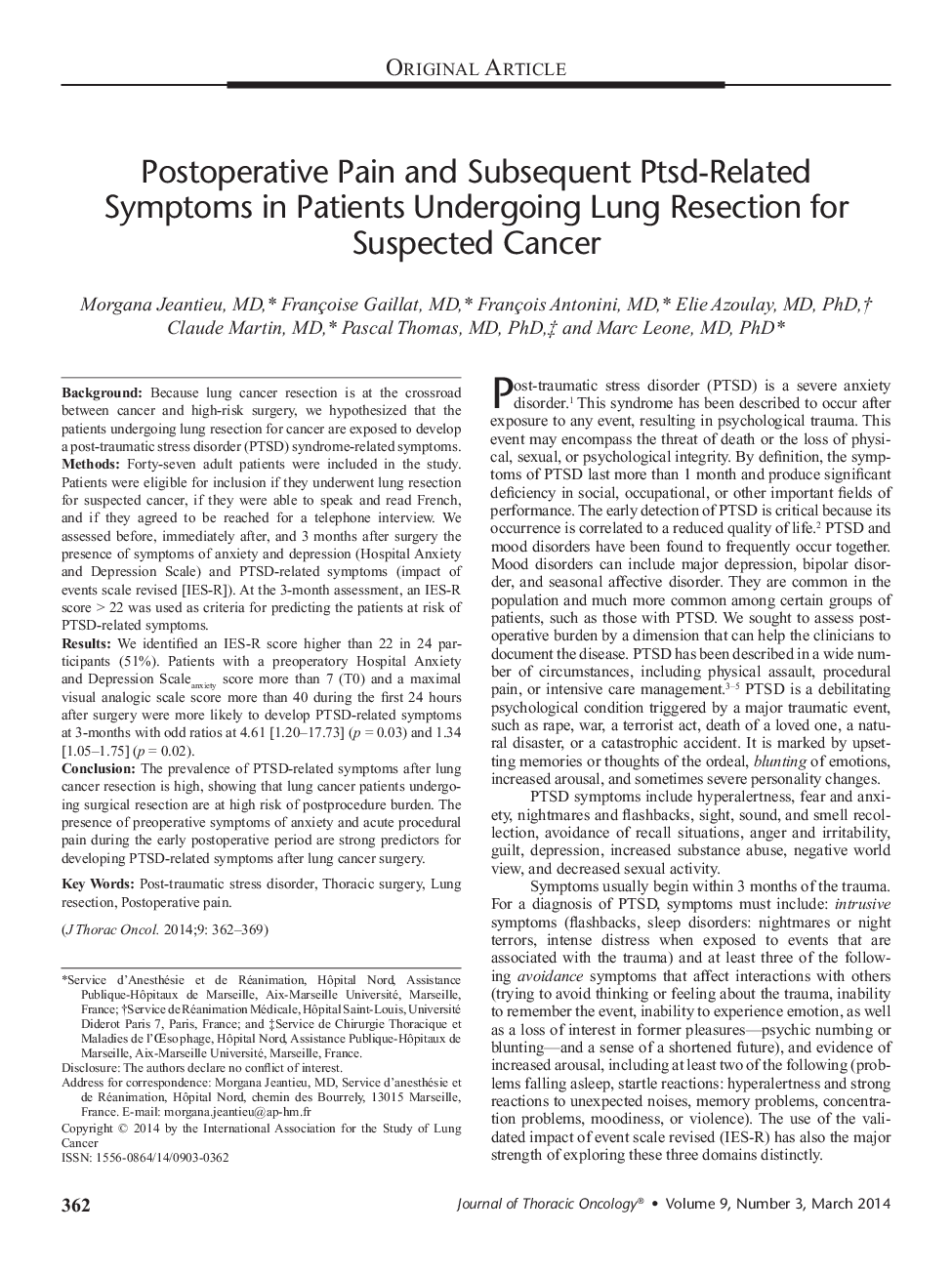| Article ID | Journal | Published Year | Pages | File Type |
|---|---|---|---|---|
| 6193462 | Journal of Thoracic Oncology | 2014 | 8 Pages |
Background:Because lung cancer resection is at the crossroad between cancer and high-risk surgery, we hypothesized that the patients undergoing lung resection for cancer are exposed to develop a post-traumatic stress disorder (PTSD) syndrome-related symptoms.Methods:Forty-seven adult patients were included in the study. Patients were eligible for inclusion if they underwent lung resection for suspected cancer, if they were able to speak and read French, and if they agreed to be reached for a telephone interview. We assessed before, immediately after, and 3 months after surgery the presence of symptoms of anxiety and depression (Hospital Anxiety and Depression Scale) and PTSD-related symptoms (impact of events scale revised [IES-R]). At the 3-month assessment, an IES-R score > 22 was used as criteria for predicting the patients at risk of PTSD-related symptoms.Results:We identified an IES-R score higher than 22 in 24 participants (51%). Patients with a preoperatory Hospital Anxiety and Depression Scaleanxiety score more than 7 (T0) and a maximal visual analogic scale score more than 40 during the first 24 hours after surgery were more likely to develop PTSD-related symptoms at 3-months with odd ratios at 4.61 [1.20-17.73] (p = 0.03) and 1.34 [1.05-1.75] (p = 0.02).Conclusion:The prevalence of PTSD-related symptoms after lung cancer resection is high, showing that lung cancer patients undergoing surgical resection are at high risk of postprocedure burden. The presence of preoperative symptoms of anxiety and acute procedural pain during the early postoperative period are strong predictors for developing PTSD-related symptoms after lung cancer surgery.
